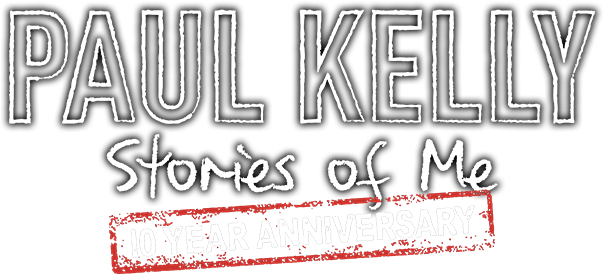Director’s Statement
I make documentaries because in my own small way I want to entertain and engage an audience and try to make a difference. I like to tell stories about people who inspire me and who I believe inspire others.
I need to feel a personal resonance with the stories I try to tell. Over the past decade I’ve directed films about an investor of biblical proportions, an extreme adventurer, an ensemble of theatre actors, a group of homeless street kids, and now an iconic musician.
Having been involved with a homeless shelter in Sydney for 10 years, I wanted to give a voice to the street kids of Australia. This translated into the AFI-award-winning documentary The Oasis, about youth homelessness, and the follow-up short film Polly and Me, about child abuse as seen through the eyes of an 8-year-old girl. Similarly, as a once frustrated actor then involved with the Sydney Theatre Company, it was my passion for theatre that led me to direct In The Company of Actors, a documentary about the mercurial process of creating theatre. Likewise, having walked across the deserts, salt lakes and mountain ranges of outback Australia with Jon Muir, the film Alone Across Australia, about Australia’s greatest living adventurer emerged. My first documentary, Woodstock for Capitalists, was a tongue-in-cheek look at the world of Warren Buffett, a folksy US investor with a difference, from Omaha, who was my role model for how to conduct yourself in business.
All of the films I direct are accompanied by extensive education and outreach programs”
What these and other stories showed me was the power that documentary has to not only entertain but to educate, inspire and, potentially, create meaningful social change. All of the films I direct are accompanied by extensive education and outreach programs, often targeted to both mature audiences and school students across Australia.
So why a documentary about Paul Kelly? Well, he’s been speaking to me for over 30 years. Having grown up in Melbourne I too stood on the hill looking over the bridge towards the MCG. I moved my home from nearby St Kilda to Kings Cross. I, like Paul, had many great aunts who lived in Adelaide, and I have also long been an Aussie Rules tragic and love kicking the footy. His cassettes accompanied me on every single road trip and were in my Walkman on each backpacking holiday, whether in the outback of Australia or walking in the Indian Himalayas. I was there in the 1980s, in the smoke-filled pubs of Richmond and St Kilda, when the Dots and then the Coloured Girls/Messengers first emerged on the scene.
In other words, as with all the other documentaries I’ve directed, there is an unapologetic personal interest involved here. Paul Kelly has managed to sing to me in a way that no other poet, story teller or musician has done. And I needed to know the reasons why. I was equally curious as to why he spoke not only to me, but to audiences across Australia of all ages and gender. Perhaps if I knew a little more about the man behind the music, a part of this riddle might be solved.
Little did I realise at the time that so much of Paul, in so many ways, had already been explained to me in his songs…”
As Director, I have typically had a reasonably good understanding of the topic well before filming has commenced, primarily through direct exposure to the subject (in some instances over several years). However, in this instance, I had never met Paul before and despite his words and music having been in my ears for so many years of my life, I felt I knew virtually nothing about him. Little did I realise at the time that so much of Paul, in so many ways, had already been explained to me in his songs – I just needed to listen to them all again, with fresh ears, and view them with clear eyes and an open heart.
Paul is a fascinating subject — from his musical lineage and formative childhood, through his difficult period as a young musician, to his strong and varied musical career spanning nearly 40 years. There was so much rich and fertile territory to cover, and the challenge was to distill so many aspects of his life down into something less than 100 minutes.
With over 50 interviews, hundreds of hours of concert and rehearsal footage, years of archival footage, and thousands of articles and photos to consider, in addition to a canon of over 350 songs, the task of creating a compelling story was immense. Ultimately our objective for the documentary was to match the style and rhythm of the film with the style and rhythm of our subject — unconventional, a tad elusive, intelligent, curious, ambitious, uncompromising, professional, lean, engaging and rewarding. Hopefully we succeeded on that front.
As filmmakers, we do feel that we have come a little closer to understanding Paul Kelly, and why he speaks to so many of us. But when making a film about an individual, especially a public icon, it would be quite wrong to suggest that we actually discovered the “truth”. The truth is always elusive. Had we been filming Paul for 57 years, we’d still be making choices, and telling his story from our perspective only. The best we can hope to do as filmmakers is make an entertaining film, summarising the highlights and the key points of impact in his life’s journey, and create a piece that is a metaphor for his life and his art.
So who is Paul Kelly? Maybe some questions are best left unanswered …
Ian Darling
— July 2012
